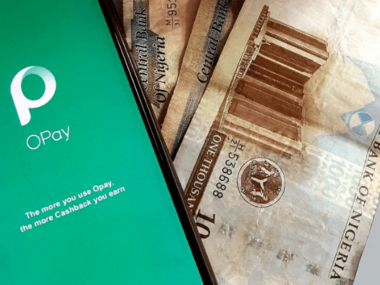How to apply for student loan in Nigeria is a question that is increasingly relevant as the price of education continues to increase in the nation. With the price of university tuition fees, accommodation, textbooks, and living expenses putting a huge financial burden, numerous Nigerian students and families are looking for affordable financing alternatives. Whether you’re a new undergraduate, a current student living paycheck to paycheck, or seeking graduate school admission, understanding the student loan reality in Nigeria can be your passport to scholarly achievement without prompt financial adversity.
Understanding Student Loans in Nigeria
Before delving into application processes, let it be known what one is enrolling for when availing loans for education.
What Are Student Loans?
How to get a student loan in Nigeria starts with understanding what precisely these financial instruments are. Student loans are unique financing vehicles designed for education purposes only. They are different from ordinary loans in that they typically have more forgiving terms for students, like lower interest rates, more lenient repayment terms that often kick in after graduation, and more lenient eligibility criteria. Think of them as money bridges that help you get to the other side of your current status to your higher-educated future with enhanced earning potential.
Student Loans Available in Nigeria
The appearance of student loans in Nigeria has significantly evolved over the past couple of years, and there are options today.
Government-Backed Student Loans
How to get student loan in Nigeria from the government is through the Nigerian Education Loan Fund (NELFUND), established by the Student Loans Act of 2023. This is a proposal to provide interest-free loans to Nigerian students in tertiary institutions to mitigate the financial barriers that discourage many worthy students from pursuing further education. It’s like the government is investing in your future potential.
Private Institution Student Loans
A few banks and financial institutions in Nigeria already offer student loan products, including:
- Commercial banks like First Bank, GTBank, and Stanbic IBTC
- Microfinance institutions that focus on education financing
- Educational trusts and foundations
These private options have different terms and conditions from government programs, similar to the choice between a tailored suit and one off the rack—both have their advantages depending on your specific situation.
How to Apply for Student Loan in Nigeria: Requirements of Eligibility
Before you start the process, ensure that you meet the minimum requirements of eligibility to avoid squandering time.
Academic Qualifications
How to apply for student loan in Nigeria successfully means knowing that most lenders will require evidence of your academic prospects. Generally, you will need:
- Admission letter from a recognized Nigerian university or college
- Evidence of stable academic performance (transcripts or results)
- For continuing students, proof of good standing with your institution
Consider these requirements as lenders who want to ensure that they’re investing their money in someone who is concerned about their education—just as a farmer won’t plant seeds on desolate land.
Documentation Required
Having your documents ready beforehand makes the application process a lot simpler. Typically, you’ll need:
- Valid identification (National ID, voter’s card, or international passport)
- Proof of admission or studentship
- Academic transcripts
- Birth certificate
- Passport photos
- Bank details
- Guarantor details (including work details and financial reports)
Having all these documents in place is like having your tools under your hands before you start a project.
It makes the entire process more efficient.
How to Apply for Student Loan in Nigeria: Step-by-Step Process
Applying is a matter of a little difference depending on which loans you are applying for, government or private loans.
Applying for Government Student Loans
How to apply for student loan in Nigeria through NELFUND entails following established procedures under the government’s mandate.
The NELFUND Application Process
- Log in to NELFUND official website or authorized application centers
- Register and verify your email
- Complete the online application form with personal, academic, and financial information
- Upload required documents
- Submit your application and take note of your application reference number
- Attend any interviews or verification processes if required
- Wait for approval notification
It is similar to driving through a series of checkpoints—each checkpoint brings you closer to your destination of accessing funding.
Applying for Bank and Private Institution Loans
Procedure for applying for student loan in Nigeria through private means typically takes this order:
- Research different banks offering education loans to compare terms
- Visit the selected bank’s website or branch
- Request a student loan application form
- Complete the form with required personal and academic details
- Provide guarantor information (usually 1-2 guarantors are needed)
- Submit all supporting documents
- Undergo credit check
- Upon approval, read and sign loan agreement
- Receive payment either directly to your institution or personal account
Keep in mind that all banks have marginally different requirements and procedures, such as how various restaurants might prepare the same dish but in their own special recipes and presentation.
How to Apply for Student Loan in Nigeria: Approval Tips
- Strategic planning and presentation are needed to increase your approval chances.
- Building a Strong Application
How to apply for student loan in Nigeria successfully is more than completing forms. To impress:
- Emphasize your academic success and potential
- Clearly state your educational objective and career aspirations
- Explain how the degree will enhance your earning capacity
- Show any part-time work or financial responsibility background
- Be realistic about how much you’re asking for
Use your application as your own marketing report—it has to persuade lenders that you’re a good investment.
Obtaining Guarantors
Good guarantors are often the hardest to obtain. When approaching potential guarantors:
- Start with relatives with secure jobs
- Have a clear definition of your study plans
- Make them certain of your intention to pay back
- Provide them with the complete terms of their responsibility
- Be ready to approach several people if need be
Your guarantors are essentially standing surety for your future and character potential—pick individuals who believe in you.
Repayment Arrangements and Considerations
How to get student loan in Nigeria should include consideration of repayment from the outset. Most loans offer:
- Grace periods until post-graduation
- Income-contingent repayment arrangements
- Fixed monthly repayments
- Early repayment incentives
Pre-planning your repayment like pre-planning how to travel back home when on a journey gives direction and confidence.
Conclusion
Educative information on the way to go about applying for a student loan in Nigeria unravels educational barriers that could otherwise go unrealized due to insufficient finance. Knowing the options you have, planning ahead of time, and being systematic in looking for funding will have you gain access to the aid you require to accomplish your objectives. Remember that a student loan is an investment in your future income and yourself. If planned and done well, it can be the start to accomplishing your education and career goals without the weight of money.
Frequently Asked Questions
1. Am I entitled to apply for a Nigerian student loan if I am a part-time student?
Yes, most establishments now offer part-time student loans, although the conditions might be more stringent and you may have to provide proof of employment.
2. What is the rate of interest on student loans in Nigeria?
Government loans from NELFUND are interest-free, but private bank loans are typically 9% to 15% based on the bank and your history.
3. Do I have to start repaying my student loan before I graduate?
All Nigerian student loans have grace periods until graduation, but some private loans have low payments in school.
4. If I cannot find a suitable guarantor, what can I do?
Some institutions offer alternatives such as accepting property as a collateral, and some institutions offer student programs for students with a good academic record.
5. Is there availability of Nigerian student loans for international students?
Nigerian student loans are generally made available to citizens or permanent residents only, though some private institutions have special international student programs.




